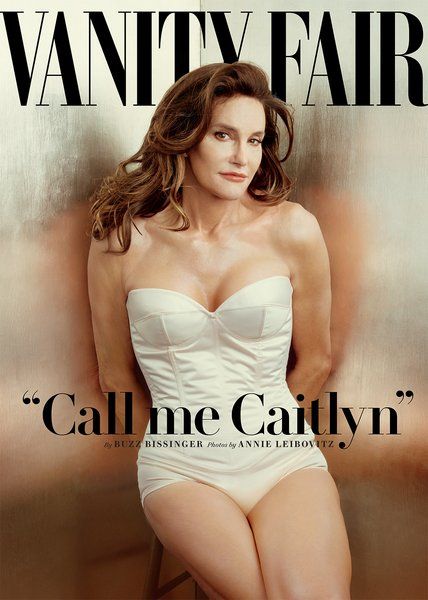May 17 is the International Day Against Homophobia and Transphobia. We might be used to having the LGBT community always claiming for more rights or at least equal rights, but this day is a bit different: recognising that in many democratic countries, LGBT individuals are already getting their rights recognised (it took decades, but we’re getting there), the next step — a much harder one! — is to change mentalities.
This pretty much means that while your country might forbid discrimination against homosexuals and transgendered people, in practice, discrimination still happens. Sometimes it’s blatant, sometimes it’s far more subtle — so subtle, in fact, that it escapes being noticed.
[shashin type=”photo” id=”1541″ size=”small” columns=”max” order=”user” position=”left”] Driving around crossdressed is fun. In my country, and in most democratic countries, this is perfectly allowed. Let’s skip the issue about being transgendered or not; you have the right to express yourself freely. Specially in the privacy of your car, of course. Legislation protects that right of yours to dress pretty much as you wish, unless you’re hiding after committing a crime. So this means that if a police officer stops you and asks you for your ID, you have nothing to fear from them: you’re not doing anything forbidden by law.
On the other hand, a transphobic police officer might give you a hard time. He might claim, for example, that you don’t look nowhere like the picture on your driver’s license and force you to go to the station “to be identified under better lighting”. And give you a hard time about it, harass you, call you names, and so forth. What can you do? If you’re very open about your crossdressing, you might file a formal complaint. But that means going to a court, stand on trial, and affirm “Yes, your honour, I’m a crossdresser and I was driving crossdressed on that night, but I didn’t drink and my car was in order” in front of witnesses, friends, family, and possibly even a TV station. Most crossdressers are not that open about their crossdressing. So you will swallow your pride, pay whatever fines are presented to you, apologise, and get back home as soon as possible, forgetting everything.
That’s harassment and discrimination. That’s why we have the International Day Against Homophobia and Transphobia: it’s not to claim for more rights and equal rights, but to raise awareness about the rights we already have. Police officers, in the above example, are not allowed to give you a hard time just because you are dressed in a “queer” way. If there aren’t any real charges against you, your choice of dress — assuming that it doesn’t present a driving hazard! 12″ heels might be considered a hazard (after all, in some countries, you cannot drive barefoot, either, because your feet might slip from theopedals) — is part of your freedom of expression. Both you and a hypothetical transphobic police officer know that. But the transphobic police officer also knows that crossdressers usually won’t complain or even press charges. So they’re free to abuse you — and that is, plain and simple, discrimination.
Now I’m fortunate enough never to experience this. On the other hand, discrimination can be far more subtle.
Many of you know me from my YouTube videos. On them, I take special care to be within the Terms of Service. My videos are not pornographic: I don’t strip, I don’t show any more “flesh” than allowed. In fact, a video from Shakira, Lady Gaga, or Jennifer Lopez is far more sensual and erotic than my own “hottest” video. Several Disney movies have characters that are way more erotic than me, and still get a rating lower than PG (think Jessica Rabbit in Who Framed Roger Rabbit?). While videos with people smoking might be frowned upon in certain communities, YouTube actually doesn’t forbid them (yet!) since smoking is allowed in all countries on Earth, at least for adults. Sure, for the smoking fetishists, my videos might be very exciting. For those who love crossdressers, they might be mildly interesting. For the rest of the world, they will be mostly indifferent. It’s only for the transphobic community that my videos are frankly disgusting. It’s not because they’re videos of a woman smoking — there are gazillions of those on YouTube. Many of those videos are even fake. It’s because although I post videos of myself as a woman smoking, while not actually legally being a woman. This is what makes a transphobic person tingle all over. Because they cannot do anything about it, they just insult and harrass me — discrimination! And they know I cannot do much about it, because the only option I have is to file a harrassment suit against them, and that’s not only very expensive, but it means public exposure, which I’m not that keen to have.
Besides YouTube, however, I’ve also been a Blip.TV user from the very beginning. I loved Blip.TV for four reasons. First, back then when Blip.TV and YouTube were young, Blip.TV had far better quality. It also allowed videos to be longer than 10 minutes. You could automatically get some ad revenue from the videos. And finally, it exported them automatically to iTunes. When Google acquired YouTube, they gradually improved the quality of the videos, and currently Blip.TV is not so much better. Also, Google now allows larger videos. Getting ad revenue is a problem… in my case, it seems I cannot get rid of some alleged copyright infringements (I’m innocent but cannot prove my innocence easily — YouTube’s technical support takes a long time to review my claims and usually ignores them) and haven’t been accepted as a YouTube Partner yet. And I have yet to test the podcaster options on FeedBurner to get the videos uploaded to iTunes.
Blip.TV did all of that automatically for me, so I naturally used it: all my videos were simultaneously on Blip.TV, YouTube, and iTunes.
This week, however, I got a short message from Blip.TV. They simply stated that they were sorry, but terminated my account because I violated their Terms of Service.
Now, I’m not a lawyer, but I have dealt with Terms of Service for over a decade now. So I carefully reviewed it, and sent an email back, showing them, point by point, where none of the forbidden content applied to my videos. They don’t have a very long list, so this was easy to claim. I got a mail back after 24 hours saying that “my content was not appropriate” and showed me a paragraph explaining that Blip.TV is designed for “Web-based video series”. I carefully replied saying that all my videos have a theme, are split in episodes, and have a common layout and presentation, and are also regularly uploaded. So they are definitely within the concept of a “series”. They are all about myself and my hobby as a smoking fetishist. Sure, I watched many other series on Blip.TV, and saw that they were all produced by expert video professionals, while I’m a humble amateur, with very low-end production facilities and low-quality equipment. But the only reason for not being in strict conformity with Blip.TV’s guidelines was that my “series” was not professionally produced. On the other hand, Blip.TV doesn’t explicitly state that amateurs are not allowed. They imply it, but they don’t state it. After all, if you’re a professional video producer, why are you wasting time and money putting a series of costly-to-produce episodes on Blip.TV, where you will just earn a handful of dollars from advertising?
Still, the termination of my account has a side issue. I had been getting some revenue from ads placed on my content, and those, of course, are a share of what Blip.TV gets. By cancelling my account I’m unable to get my money. But all the money Blip.TV made from selling ads on my content is for them to keep. So, in a sense, I was victim of a fraud, too. Obviously we’re not talking millions or even thousands of dollars here; my videos on Blip.TV were barely watched. But it’s the principle that is at stake: after encouraging me to subscribe to their services, later on, for no apparent reason whatsoever, Blip.TV is allowed to terminate my account without reason and keep all the money. I get nothing. It’s not the amount of money that is at stake here, it’s the principle behind it.
So, of course, the “violation of the Terms of Service” was just a pretext. At some point in time, a transphobic employee of Blip.TV reviewed one of my videos, was disgusted by it, and terminated my account. That’s simple. He knows I’m not going to file a complaint on a court because I don’t want any public exposure.
It’s against this kind of thing that LGBT associations fight every day. The International Day Against Homophobia and Transphobia is a reminder that while we have laws to protect our rights, transphobia still means harassment, abuse, and discrimination. While my case is certainly a peaceful one — I was not hurt, I didn’t lose my job, I’m not in the gutter struggling to get a hot meal — I nevertheless was deprived of a (very minor) source of income and refused to participate in a global community of video producers, amateurs or professionals, who lovingly serve a community of fans. All that because someone hates transgendered people.
We should not forget that discrimination comes in many forms, many of which are rather subtle and will continue to go on, no matter how strong the anti-discrimination laws are, and how well they’re enforced. Minorities like transgendered people, who have to fade into the background and avoid public exposure are particularly vulnerable to discrimination, because they are unwilling to “fight back”. We could, if we wish, but we don’t, because we don’t want to put all our lives at risk through public exposure. So it’s not just in the streets that transgendered people are being discriminated: it happens on the Internet as well.



